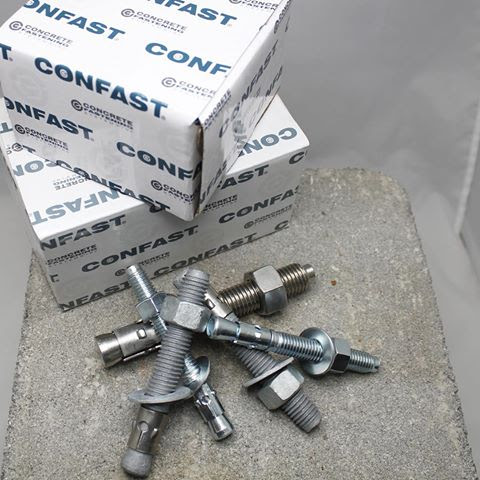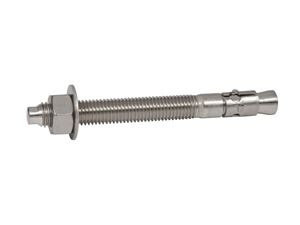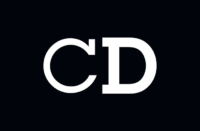 Damaging the threads on a wedge anchor during installation is a common cause of escalating costs and diminishing longevity of applications. Care must be taken not to damage the threads during installation. Awareness of several basic practices will result in protecting the wedge anchor threads, which will increase cost effectiveness on the job site.
Damaging the threads on a wedge anchor during installation is a common cause of escalating costs and diminishing longevity of applications. Care must be taken not to damage the threads during installation. Awareness of several basic practices will result in protecting the wedge anchor threads, which will increase cost effectiveness on the job site.
All threads on wedge anchors are national coarse threads for each diameter. Once a wedge anchor is installed, its threaded end will jut above the surface of the concrete. Protecting this protruded area of the wedge anchor is crucial. If an installation tool, such as a hammer, damages the threads then the nut can no longer be put on or taken off. Then the wedge anchor will need to be replaced, driving costs higher.
 TIPS to Protect Wedge Anchor Threads
TIPS to Protect Wedge Anchor Threads
- When installing a wedge anchor, the nut must be threaded on the threaded end of the wedge anchor so that the top of the nut is even with the top of the wedge anchor body.
- By taking the time to thread the nut on correctly, the threads will be protected during installation and allow the nut to be removed and threaded back on.
- Many wedge anchors are manufactured with a bullnose that extends above the threads to provide a surface for the hammer to strike without damaging the threads. Although the bullnose feature works very well, it is advised to thread the nut onto the wedge anchor as a precaution to ensure that the threads are not damaged by the hammer strike.
- The larger diameters of wedge anchor will need to be installed with extra caution in order to protect them from the hammers that will be need to be heavier.
Purchase all diameters, lengths and steel types of wedge anchors direct from the manufacturer at www.confast.com











